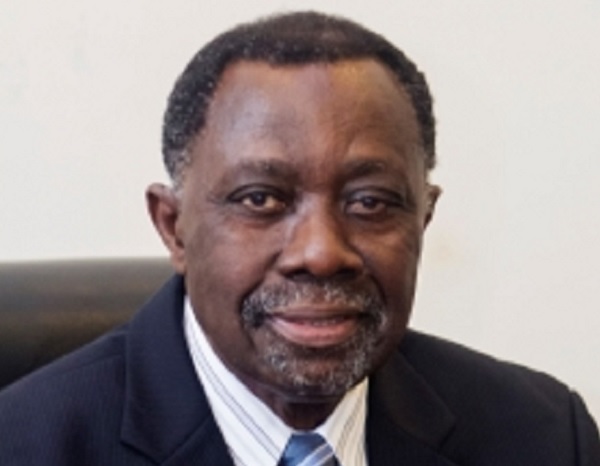
Let’s sustain free SHS, TVET through financing — Dr Amoako
The Founder and President of the Africa Centre for Economic Transformation (ACET), Dr K. Y. Amoako, has called on the government to make the financing of free senior high school (SHS) and technical and vocational education and training (TVET) programmes sustainable.
Advertisement
He said the government should also offer equitable chances for girls and people with special needs.
Moreover, he said, there should be an improvement in the quality and the relevance of the free SHS and TVET, as well the participation of girls in STEM and TVET programmes.
Dr Amoako said this in Accra at a technical consultation session on education towards the development of a binding bi-partisan development blueprint for the country, to be known as the Compact for Ghana’s Political and Economic Transformation (Ghana Compact).
Objective
The meeting aims at deliberating on the challenges confronting the educational sector and recommend ways to address them.
The Ghana Compact is a Pan-African think tank which, among other things, aims to bring all Ghanaians together to articulate the future they want for the country by 2050.
Dr Amoako underscored the need for free, decentralised and inclusive quality basic education that was accessible to those who needed it, as well as the strengthening of teacher training programmes.
He said given that more than one-third of the country’s population was under 15 years, the future was really about the youth.
But, unfortunately, the youth currently faced many challenges, the key one being access to good jobs, he said.
“For example, out of the 360,000 SHS students who graduated in 2020, only 35 per cent were likely to transit to the tertiary level, leaving close to 240,000 in search of jobs, with less than 100,000 securing decent formal sector jobs,” he said.
Economic growth
In general, Dr Amoako said the country’s economic growth had failed to create enough jobs, and that only about 31 per cent of the labour force was in formal employment as of 2020, with an unemployment rate of 13 per cent, which was rising to 20 per cent for the ages of 15 and 35.
“Women are particularly disadvantaged, with only 19 per cent of them engaged in waged or salaried employment.
These problems are likely to worsen in the coming decades if no decisive action is taken now,” the development economist stated.
He said young people could only secure jobs if they had the types of skills that employers demanded.
However, at present, he said, there was a serious mismatch between the current educational system and the skills and training required for the workplace.
“In addition to technical skills, young Ghanaians are lacking in soft skills, such as critical thinking, leadership, problem-solving and innovation,” he added.
“The educational sector is also facing a multitude of challenges.
Although the free SHS policy has vastly improved access to secondary and TVET education, the sector is confronted with various issues, including how to achieve sustainable financing, improve access for girls and marginalised groups, provide adequate physical and digital infrastructure and improve teaching quality,” he said.
Job market
Dr Amoako said the country would be suitably positioned to supply well-educated and skilled workers for the job market, which would help reap the demographic dividend and boost economic growth, if it could make the free SHS and TVET sustainable, among other things, by 2050.
During a panel discussion, the Executive Director of the Africa Education Watch, Kofi Asare, called for increased investment in the educational sector.
The Country Representative of Crossroads International, Gifty Volimkarime, stressed the need for the strengthening the monitoring and accountability system.
For his part, the Technical Adviser at the Ghana TVET Service, David Mensah, stressed the need for more TVET infrastructure in the rural areas.
In a presentation, the Head of Youth Employment and Skills at ACET, Mona Iddrisu, called for increased investment in school infrastructure to improve the pupil-teacher ratio and learning materials, particularly in the rural areas and under-served regions.




